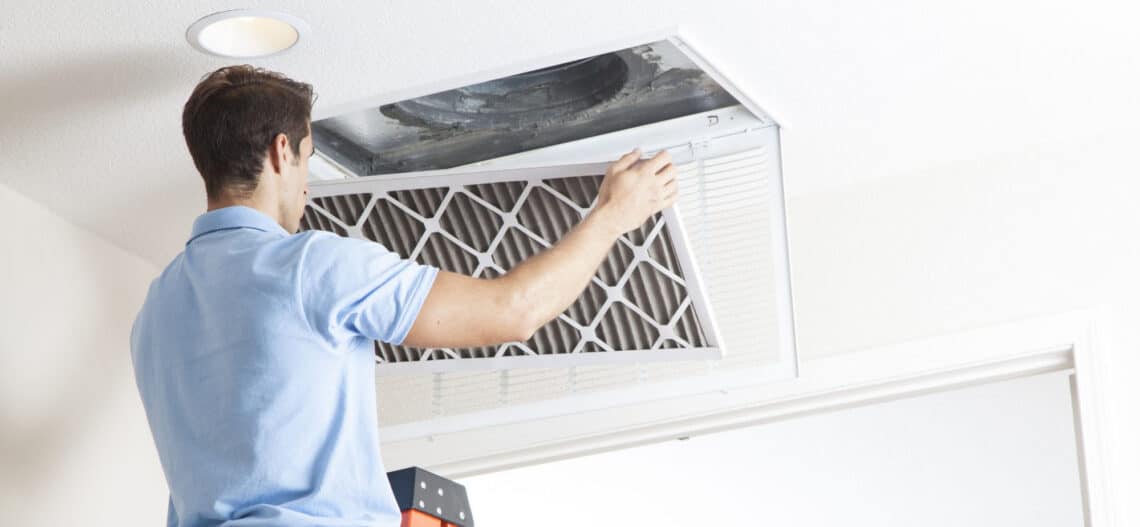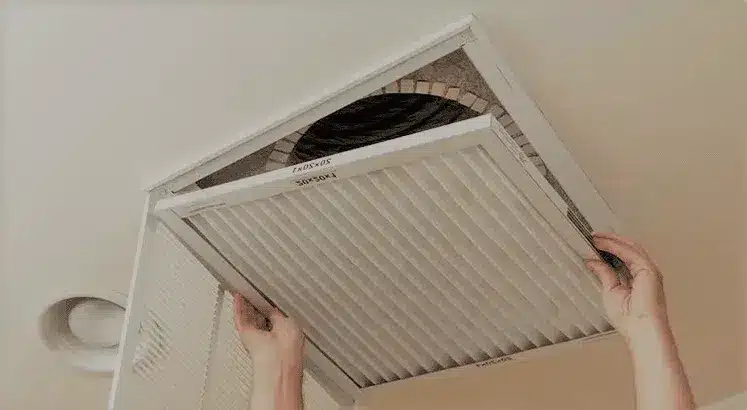Maintaining a comfortable home is essential for ensuring your family’s health and well-being, but the size of your air filter matters just as much as other elements of your HVAC system. If you choose an air filter 20x20x1 and it is too small or large for your HVAC system, it could reduce its efficiency and even damage the system in the long run. That’s why it is important to understand how to pick out an air filter that fits your particular heating and cooling setup and how regularly changing that filter can keep things running smoothly year-round.
Understanding the Size of the Air Filter
Understanding how to choose the right size air filter for your HVAC system can make a significant difference in the quality of your indoor air and the longevity of your HVAC system. The first step in choosing the right air filter is to determine the size of the filter needed. This measurement involves two important dimensions—the length and width of the filter. HVAC systems are engineered to work efficiently with a specific size of the air filter.
When you choose the wrong size air filter, it can lead to restricted airflow, increased energy costs, and unnecessary strain on your HVAC system. Therefore, it is imperative to always match your air filter to the size recommended by your system’s manufacturer to ensure optimum performance and energy efficiency.
Assessing the Right Size for Your HVAC System
This can be accomplished by a qualified HVAC technician who can perform a load calculation, taking into account factors such as the size of your home, insulation, number of windows, and the local climate. It’s important to ensure that your HVAC system is not too large or too small for your space.
An oversized system will waste energy and drive up your utility costs while a system that is too small will struggle to keep up with demand, leading to premature wear and tear. By matching the size of your air filter to your HVAC system, you can ensure that air flows smoothly while keeping your indoor air quality high. Consulting with an experienced HVAC professional can help you determine the right size for your HVAC system and choose the proper air filter that will maintain optimal performance and keep your space comfortable.
Benefits of Finding the Correct Size Air Filter
Finding the correct size air filter can not only improve your indoor air quality but also have positive effects on your HVAC system and energy consumption. Firstly, the right-sized filter can effectively capture airborne contaminants and allergens, such as pollen, dust, and pet dander, which can contribute to poor air quality and health issues. Additionally, a correctly sized filter prevents these particles from clogging up your HVAC system, which can lead to reduced efficiency and higher energy bills. By providing sufficient airflow and reducing system strain, a properly fitted air filter extends the lifespan of your HVAC system, lowering the cost of maintenance and repairs over time.
Potential Risks of Having an Incompatible Air Filter Size
One of the biggest potential risks is damage to your heating and cooling equipment. If the air filter is too small or too big for your system, it can cause airflow problems, such as reduced efficiency or even breakdowns altogether. Additionally, an incompatible air filter can also allow dust, debris, and other contaminants to circulate within your ductwork and HVAC system, causing damage to internal components and decreasing indoor air quality.
Furthermore, an incorrect air filter size can increase your energy bills as your HVAC system has to work harder to maintain the desired temperature. To avoid these potential risks, it is crucial to match your air filter to your HVAC system’s specifications and replace your air filter regularly to optimize performance and efficiency.
Conclusion
Matching your air filter to your HVAC system is vital in ensuring optimal performance and indoor air quality. By understanding the size, type, and MERV rating of your air filter, you can select a filter that effectively captures pollutants and allergens, while allowing your HVAC system to operate efficiently. Regularly replacing your air filter can also extend the lifespan of your HVAC system and save you on energy costs. Taking these simple steps to improve your indoor air quality can lead to a healthier and more comfortable living space for you and your family.













